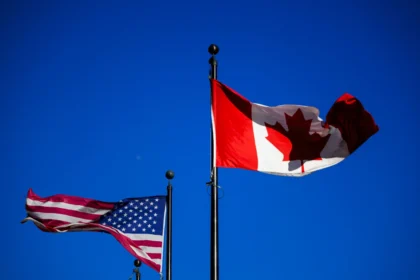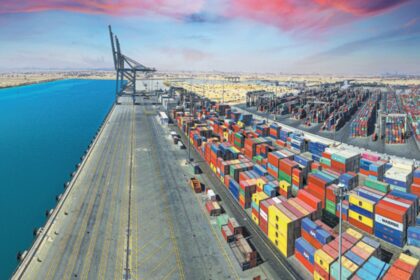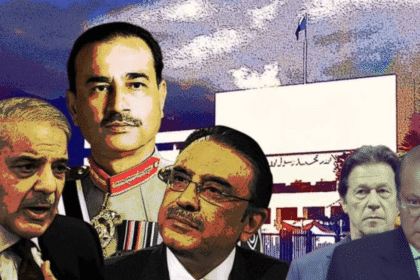“They’re not doing their job. Europe is not paying their fair share.”
This is what Donald Trump said in 2024 to a Times reporter in reference to the Ukrainian war. This quote perfectly encapsulates how The Donald and his followers see foreign policy and what they want to be changed.
Ever since Donald Trump, the 45th President of the United States, came into power, he immediately made international waves by pivoting and tearing down over a decade of American foreign policy approaches and temperament. Gone were the days of American double-speak of human-liberal rights, grandstanding gestures of liberal world order, and faux concern about international fairness and cooperation. Enter aggressive militaristic rhetoric, threats to foe and friend alike, and a penchant for naked quid pro quo; the Iran nuclear deal was nuked, deals with Mexico and Canada were re-negotiated, military adventures ended, and trade wars initiated. Such style appalled foreign policy experts, dismayed traditional allies, branded as perfidious by rivals, and absolutely… loved by his domestic base.

Because for his base, Trump represents an honest and direct statement: America First. Under him, US foreign policy isn’t driven by pesky ideological crusades on human liberal rights, being the pillar of a rules-based international system, or being a benign protector of global sovereignty against rogue states—as much as the rest of the world might roll its eyes at such statements—but rather unapologetically pursuing American interests, whether it be political, economic, or simply about prestige. MAGA thus wants only American goals pursued and only American gains actualised; freeloading allies are just as much a drain to America as sworn enemies; the latter strikes American power directly, while the former leeches off American generosity and thus finances. Thus, threats of tariffs or demands for increased spending from allies like the EU and neighbouring countries like Canada and Mexico aren’t just actions of a deranged mob but a desire to reset an imbalanced, parasitic relationship.
Of course, for Trump specifically and MAGA generally, foreign policy is closely tied with domestic battles and ideological score-settling. The woke liberal establishment must be dismantled, and that extends to their foreign policy, both in execution and understanding. Liberal DEI programs and the promotion of “woke” culture are seen as wasteful and contradictory to American values in the eyes of The Donald and Trumpists. It must be exculpated to save money in the federal government, and thus, one is not surprised that USAID, perhaps the most enduring tool of American soft power since Kennedy established it, is being dismantled brick by brick by a techno-populist billionaire in the form of Elon Musk.

Yet, the MAGA movement is hardly a homogenous whole; it is just as fissiparous as any other mass movement in America and has several key groups with differing visions. Just like how, domestically, MAGA is split up between far-right white supremacists, disgruntled rust-belt workers, conservative Latinos, libertarian gun-ho activists, corporate millionaires, suburban moms, and frustrated Gen-Z males, the Trump administration is hardly united in foreign policy. You have the moderates in the form of Secretary of State Marco Rubio and National Security Advisor Mike Waltz, who want to craft a Monroe Doctrine 2.0 to contain Russia and China; the China-firsters in the form of Elbridge Colby undersecretary of defense, who believe in pivoting hard towards the Asia-Pacific theatre, the economic nationalists like treasury secretary Scott Bessent and Howard Lutnick, who see foreign policy as a tool to ensure American economic and financial supremacy even if it means trampling on allies like Canada and Mexico, the isolationists like CIA director nominee Tulsi Gabbard and Vice-president Vance, who simply want America to end its overseas commitments and return home and finally the Hardliners like Stephen Miller, who see foreign policy as a domestic extension to help resolve issues such as illegal immigration and want to pressurize countries to take back their citizens and support proposed Trumpian land grabs in Greenland and Gaza.
All these currents represent several facets of foreign policy Trump wishes to implement. They moderate his desire to contain threats to American international standing, the China-firsters his fear of China replacing the United States. The economic nationalists, his push to ensure Washington supremacy in energy, manufacturing, and the new AI industry; the isolationists, his efforts to cut pointless American military adventurism; and the hardliners cater to his authoritarian, legacy-making side; what greater legacy than taking over new land for America?

MAGA 2.0, with Trump at its helm, thus promises to overturn the world order in its own image. No longer will Washington pretend that he is serving some higher ideological calling or crafting a world for the sake of others; America is to be respected and not taken for granted, and moreover, will take what it wants, and international rules be damned. Hence, wasting no time, Trump and his team have already started issuing tariff threats, renewed their support for Israel with Trump promising to ethnically cleanse Gazans and make a beachfront on their ruined homes, publicly demanded that Denmark negotiate the status of Greenland with them, and forced countries like Colombia and India to start accepting deportees in military planes, handcuffed like criminals.
The second term of MAGA thus promises to be an interesting one, and it remains to be seen if this signals a resurgence of American power or the last hurrah of a dying empire consumed by the madness of its own people.
















